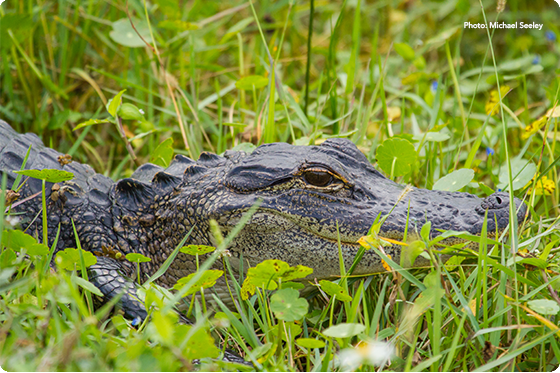
California’s ban on alligator and crocodile products has been struck down after the State of Louisiana, which leads the U.S. in production of alligator products, challenged the ban. By enacting this ban, California sought to curb animal cruelty and the trafficking of endangered species. Louisiana argued that the ban directly conflicted with federal law, and threatened jobs—as well as conservation efforts—in the state. The U.S. District Court for California’s Eastern District agreed on both counts in its decision in the case, Paris v. Becerra, No. 219CV02471KJMCKD, 2020 WL 6043948 (E.D. Cal. Oct. 13, 2020).
According to Jack Montoucet, head of the Louisiana Department of Wildlife and Fisheries and a former alligator farmer, Louisiana is the largest producer of alligator skins in the U.S. and California is one of the largest markets, accounting for about 30% of world demand. In 2017, Louisiana’s wild alligators accounted for 15,000 skins and farmers produced more than 380,000 skins. Although once nearly extinct, the alligator was declared fully recovered and removed from the endangered list in 1987. However, supporters of California’s ban, including People for the Ethical Treatment of Animals, Defenders of Wildlife, and Sierra Club, argue that it is nearly impossible to distinguish Louisiana alligator products from the items made with the skins of similar but critically endangered reptiles.
In its decision, the district court held that federal laws permitting the interstate sale of alligator and crocodile products preempted California’s ban. The court noted that the U.S. Constitution’s Supremacy Clause, which is found in Article VI, Paragraph 2 of the document, requires federal laws to take priority over conflicting state laws. As a result, the court observed, “[i]f trade in American alligators, saltwater crocodiles and Nile crocodiles is authorized by a permit or an exemption under the [federal] implementing regulations, the state’s prohibition [...] is preempted.” Paris v. Becerra, No. 219CV02471KJMCKD at 11.
Additionally, the court was persuaded by Louisiana’s argument that it would suffer greater harm from the ban than California would suffer by having the ban struck down. The district court judge reasoned that California’s alleged harms were limited to its ability to advance its policy goals. Louisiana, on the other hand, “demonstrated a likelihood of serious and far-reaching harm to their businesses and (the state’s) managed conservation scheme.” Id. Therefore, the court reasoned, the case “tip[ped] sharply” in favor of Louisiana.
The district court judge notably avoided the conservation debate implicated in the case by stating that “[f]or a district court to answer the question of which system would better serve the public interest risks crossing the line from law into policy.” Paris v. Becerra, No. 219CV02471KJMCKD at 18. In line with the U.S. Constitution’s separation of powers, courts generally refrain from weighing in on questions of policy, instead deferring to Congress to make such decisions. Although this ruling was a win for Louisiana, it is likely that California will appeal the decision to the Ninth Circuit Court of Appeals. The district court’s opinion can be found here.












